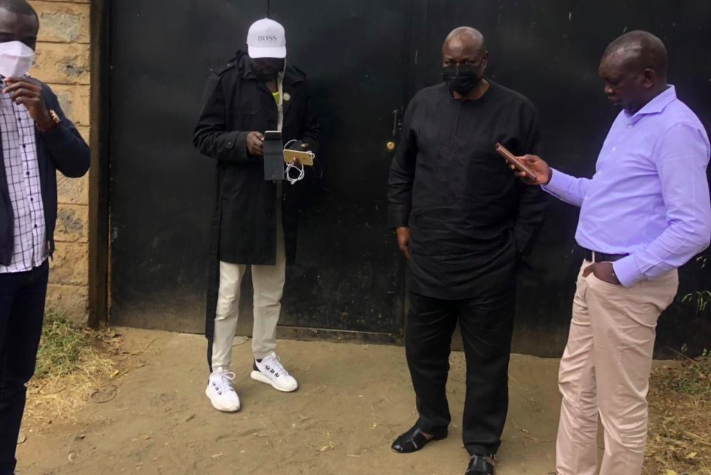President William Ruto’s choice for the Kenya National Commission on Human Rights (KNCHR) Chair has backfired after Duncan Oburu Ojwang declined the nomination.
In a surprise letter to National Assembly Speaker Moses Wetang’ula on Tuesday, August 13, Ojwang cited personal reasons and a conflict of interest for rejecting the position.
His withdrawal has halted the vetting process that was scheduled for Wednesday, August 13, leaving the crucial post vacant months after the death of former chair Roseline Odhiambo Odede. The move also deepens the legal and political disputes already surrounding the nomination.

Legal and Political Storm Over KNCHR Chair
Ojwang’s nomination was already facing intense legal scrutiny before his withdrawal. The Katiba Institute and the Kenya Human Rights Commission (KHRC) had both gone to court to challenge the appointment, accusing President Ruto of breaching constitutional and statutory requirements.
The main issue was gender parity. The petitioners pointed to Article 250(2) of the Constitution, which requires that the chair and vice-chair of a constitutional commission must not be of the same gender. KNCHR’s current deputy, Raymond Nyeris, is male, meaning Ojwang’s appointment would have created an all-male leadership at the top of the commission.
They also cited Section 1(6) of the Second Schedule of the KNCHR Act, which reinforces the same requirement. According to them, Ruto’s nomination ignored this legal provision, making it unlawful and liable to be struck down.
This legal backdrop meant that Ojwang’s vetting was expected to be contentious. Wetang’ula’s directive to the Departmental Committee on Justice and Legal Affairs to cease all consideration of the nominee effectively ends the process, at least for now.
President Ruto’s Search for a New KNCHR Chair Hits a Wall
Ruto nominated Ojwang on August 5, just a week before the planned vetting. The seat had been vacant since the passing of Roseline Odhiambo Odede, a respected human rights leader.
Ojwang, a seasoned lawyer and human rights scholar, was among six candidates shortlisted in May from 17 applicants. His credentials were strong: former Dean of the School of Law at Africa Nazarene University (2017–2023), law lecturer at the University of Nairobi, and an academic portfolio spanning constitutional law, human rights, environmental law, and law and development.
Despite his qualifications, the nomination was politically risky. The gender parity controversy meant that even if the vetting had gone ahead, it would have faced legal roadblocks and possible court injunctions.
Parliamentary Proceedings Come to a Sudden Halt
When Ojwang’s rejection letter reached the Speaker’s office, it immediately changed the course of events in Parliament. Wetang’ula told MPs that the committee handling the vetting must stop any further consideration of the nominee.
He instructed the Clerk of the National Assembly to officially notify the appointing authority—President Ruto—of the development. This means the president must now restart the search process for a new nominee, possibly considering both the gender balance requirement and the looming legal cases.
The timing of the withdrawal—on the very day before the vetting—has sparked speculation among political observers. Some believe Ojwang may have been pressured by the legal challenges, while others suggest the conflict of interest he cited may have involved personal or professional obligations not yet disclosed to the public.
What This Means for the Human Rights Commission
The KNCHR plays a vital role in safeguarding human rights, investigating abuses, and holding the government accountable. Leadership uncertainty at the commission could slow its operations and weaken its ability to respond to urgent human rights issues.
The delay also means the government will have to navigate the constitutional and statutory requirements more carefully when nominating a new chair. Failing to do so risks repeating the same controversy and further eroding public trust in the process.
This episode also highlights the growing influence of civil society groups like the Katiba Institute and KHRC in holding the executive accountable. Their swift legal challenge demonstrates that any move perceived as unconstitutional will face immediate resistance, even before Parliament begins vetting.











































